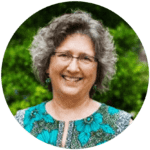Family Dinner
Ah, Thanksgiving. The turkey, the cranberry sauce, the glorious days of leftovers, the explosive arguments about politics, and the resulting damage to familial relationships for months to come.
We all have relatives on the “wrong” side of the issues who seem to pride themselves in elevating the stress levels of everyone around them. (I’m looking at you, Uncle Morty.) But it doesn’t have to be that way.
Wouldn’t it be great if we possessed tools that could turn those derisive digs into constructive conversations? Wouldn’t Thanksgiving be more enjoyable if we could, say, come together with non-like-minded people for civil conversations?
To find answers, we held a dress rehearsal for this year’s Thanksgiving dinner. At this feast of plenty (turkey, mashed potatoes, the works), Dr. Linda Moore, psychologist and APS Member, talked about interacting with those you don’t agree with, and Annette Lantz-Simmons, Executive Director of the Center for Conflict Resolution, led a workshop on how to resolve conflicts.
With Dr. Moore’s advice and Ms. Lantz-Simmons’s techniques, we were equipped to diffuse those tense moments around the table this year. So now we can go back to a time when the worst disagreement was over who gets the last piece of pumpkin pie.
How to Handle Conflict at the Thanksgiving Table
Dr. Moore noted that the first key to dealing with tough conversations is listening. Trying to listen, and showing your conversation partner that you’re listening, establishes trust. Paraphrasing the other person’s viewpoint, saying it back to them aloud, not only ensures that you’re hearing them correctly, but it also shows that person that you are trying to understand.
Ms. Lantz-Simmons agreed, suggesting that you should try to be a non-anxious presence, a person who can recognize and contain their anxiety. That kind of person becomes a circuit breaker to the group: they help others in the conversation tone it down.
The basis of resolving conflict, she said, is recognizing human dignity. “We are social beings, hardwired to react to the way others treat us, and we are all vulnerable. Dignity is an internal state of peace that comes with the recognition and acceptance of the value and vulnerability of all living things.”
Here are Ms. Lantz-Simmons’s 5 steps to conflict transformation:
- Resolve to Uphold Your Own and Others’ Dignity
- Move Toward the Conflict, Seeing It As An Opportunity
- Focus On Interests Instead of Positions
- With A Non-Anxious Presence, Show You Are Listening… “You Feel__Because__.”
- Try to Be Curious Instead of Right, Try to Learn Instead of Being Protective





